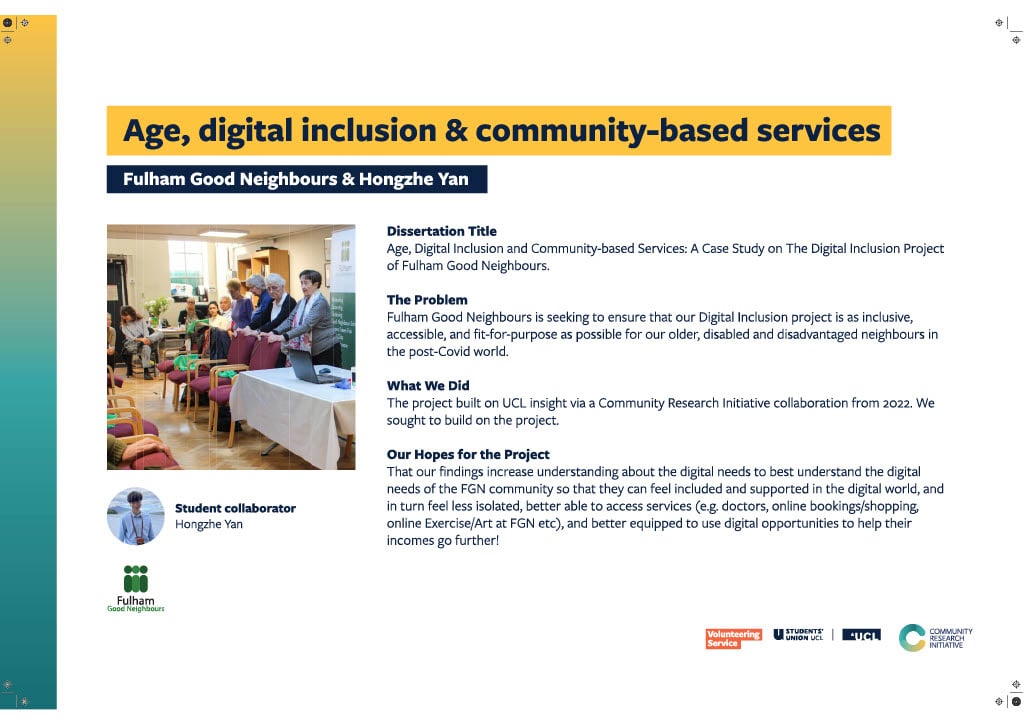
Course Title: MSc Global Prosperity
Dissertation Title: Age, Digital Inclusion and Community-based Services: A Case Study on The Digital Inclusion Project of Fulham Good Neighbours
Community Partner: Fulham Good Neighbours
Academic supervisor: Kate Maclean
Research Abstract: One of the key aspects of prosperity is “the relationship between individual lives – their quality, aspiration and purpose – and the larger systems and constraints within which they are embedded” (Moore and Mintchev, 2021, p.3). As the Covid pandemic has accelerated the process of the digitalization, digital skills have become essential for people to establish relationships with others and the larger social system (Great Britain. Office for National Statistics, 2019). Age has always been an important determinate of the digital divide. Studies have shown that during the lockdown, older people have become more isolated than other groups of people due to the inability to stay connected with others (Cosco et al., 2021; Weil et al., 2021).
Therefore, this dissertation aims to explore potential solutions to the digital divide through examining how age and digital inclusion co-constitute each other. It argues that since age and digital divide are complex and co-constituting assemblages that exist locally, community-based services based on progressive localism is a better way to solve the digital divide than current policies based on austerity localism. A case study on the digital inclusion project of Fulham Good Neighbours will be used.
I have done 20 interviewees with the staff, beneficiaries and volunteers of Fulham Good Neighbour. The expected outcome will be an dissertation with clear argument about the complexity of age and digital inclusion and how community-based services and progressive localism could offer a potential solutions to the generational digital divide. There will also be a community product (potentially a poster or an executive report outlining the strength of FGN to help FGN attracts more funding).